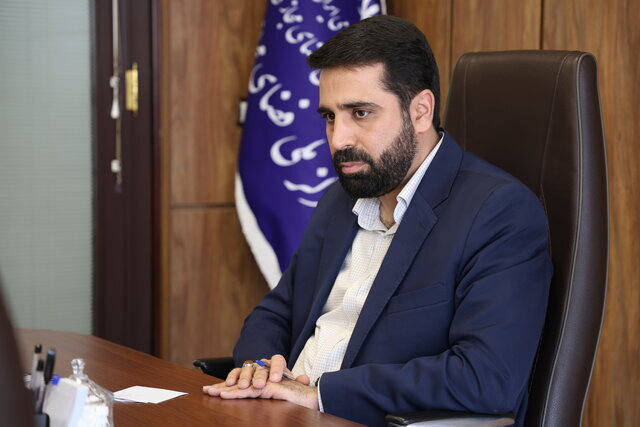Iran foils three major cyberattacks on national infrastructure

TEHRAN – Iran’s National Cyberspace Center has revealed that three major cyberattacks targeting the country’s critical infrastructure were successfully contained and repelled in recent weeks through the swift response and coordination of national cybersecurity agencies.
The announcement was made by Mohammad Amin Aghamiri, Secretary of the Supreme Council of Cyberspace and Head of the National Cyberspace Center, during the First National Conference on Cybersecurity Monitoring, held on Tuesday in Tehran with the participation of key government and security institutions.
Aghamiri said that growing public reliance on digital services makes cybersecurity a matter of national importance, warning that any disruption could spark widespread dissatisfaction.
“Cyberspace has become the fifth domain of conflict alongside land, sea, air, and space,” he said, outlining four main categories of cyber threats: destructive attacks on infrastructure, psychological operations targeting public opinion, the use of online data for military or intelligence purposes, and cyber weapons used for extortion and sabotage.
He emphasized the need for greater coordination among state institutions, drawing a parallel to the unity displayed during the recent 12-day war with the Israeli regime, and described the conference as the beginning of a new phase of cooperation in defending the country’s digital sphere.
Aghamiri noted that in 2023, the National Cyberspace Center issued a comprehensive directive to prevent vulnerabilities, calling it a “significant step toward strengthening national cybersecurity.” He said one of its main goals is to eliminate the culture of excessive data collection by both public and private sectors, requiring data to be gathered only with user consent and allowing citizens to delete their data at any time.
He stressed that proper implementation of this directive would preserve user privacy, adding that sensitive and identity-related data must be encrypted to limit access in case of cyberattacks.
Aghamiri also announced new initiatives such as cyber insurance, developed in coordination with the Central Insurance Organization, which recently issued Iran’s first cyber insurance license. He said the measure will help protect organizations against potential digital losses and promote resilience in the face of attacks.
The official further noted that the private sector now plays a growing role in national cybersecurity under recent directives from the Supreme Council of Cyberspace. This includes cooperation with FATA Police, which runs programs enabling cybersecurity experts to identify vulnerabilities before attacks occur.
“Cyber warfare may be silent, but Iran has turned it into a field of strength thanks to its skilled human capital,” Aghamiri said, calling on all cybersecurity professionals to “protect public trust, safeguard privacy, and ensure the nation’s digital stability.”
The conference also featured remarks from ICT Research Institute chief Mohammad Hossein Sheikhhi and FATA Police Commander Brigadier General Vahid Majid, both of whom highlighted the evolving nature of cyber threats and the need for stronger cooperation between government, academia, and the private sector to counter increasingly sophisticated attacks.
Majid warned that modern cyberattacks have shifted from data theft and denial-of-service operations to data destruction and open announcements of attacks, while Sheikhhi underscored the urgent need to invest in cybersecurity education and talent development.
Officials concluded that Iran’s cybersecurity outlook remains positive, citing enhanced readiness, inter-agency coordination, and the establishment of new strategic frameworks designed to build a secure and resilient national cyberspace.
Leave a Comment